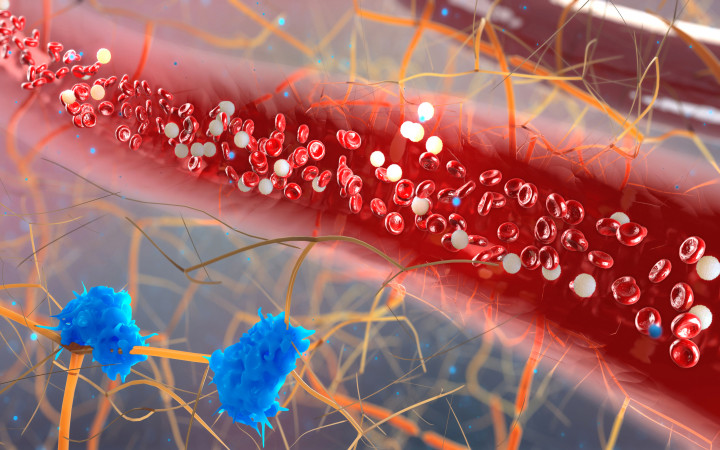Today’s Wonder of the Day was inspired by Jorge from West Valley City. Jorge Wonders, “What are macrophages?” Thanks for WONDERing with us, Jorge!
You may already know that your blood does many important things for your body. It carries oxygen, forms clots, and even fights sickness. Today, we’ll learn about a special type of blood cell. It helps protect your body from outside invaders. What are we talking about? Macrophages, of course!
What are macrophages? They’re a type of white blood cell. The thousands of white blood cells in your body fight infections from viruses and bacteria. Macrophages support this work and also rid the body of old or dead cells that it no longer needs.
You won’t find macrophages everywhere in the human body. First, they’re created in the bone marrow. Then, they spread out to four areas: the lungs, liver, central nervous system, and spleen. When an infection appears, macrophages go to work to keep you healthy.
Sometimes, though, macrophages do their job too well. They go into overdrive. In these cases, they hurt the body instead of helping it. This causes a condition called macrophage activation syndrome (MAS), which is a type of Hemophagocytic Lymphohistiocytosis (HLH).
MAS makes people very ill. It is most common in children, but adults can have MAS, too. A person with this condition may experience fever, fatigue, headaches, and brain fog. Inflammation is also common, especially in the liver, spleen, and lymph nodes.
What causes MAS? Doctors aren’t quite sure. But they have found several things that can trigger it. Most often, MAS follows an infection, cancer, or change in medication. Autoimmune disorders can also trigger MAS.
What’s the treatment for MAS? Patients will often spend some time in the hospital. There, they receive medication through an IV. Many also need an antibody transfusion. After leaving the hospital, people experiencing MAS may continue to take medicine.
MAS may sound scary—after all, it’s a very serious illness. With the right treatment, though, most patients make a full recovery. Then, their macrophages can go back to doing their important job of protecting the body from infection.
Macrophages are just one type of cell that has an important job within your body. What others can you think of? Have you ever learned about neurons? How about stem cells or bone cells? Spend some more time learning more about what’s happening inside your body!
Standards: NGSS.LS1.A, CCRA.R.4, CCRA.L.3, CCRA.L.6, CCRA.R.2, CCRA.R.10, CCRA.R.1, CCRA.SL.2, CCRA.L.1, CCRA.W.2, CCRA.SL.4, CCRA.L.2, CCRA.SL.1




